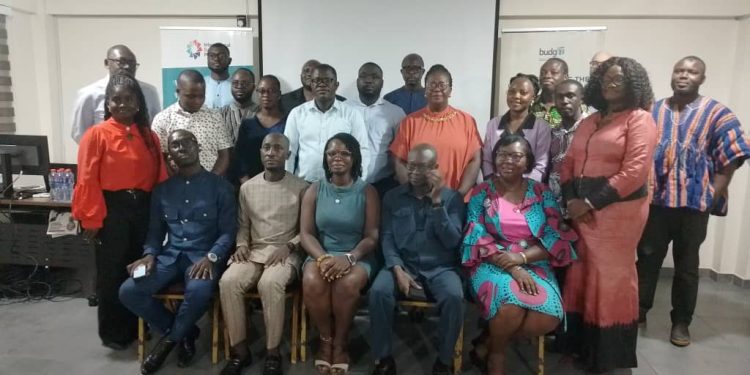IBP and BudgIT Ghana to Conduct Study on Tax Compliance in Ghana’s Informal Sector
The International Budget Partnership (IBP), in collaboration with BudgIT Ghana, is set to undertake a study aimed at leveraging data for equitable tax compliance in Ghana’s informal sector.
The study, which seeks to understand the mindset and challenges of informal sector participants regarding tax compliance, was introduced at a pre-study event on Thursday, March 20, 2025.
Understanding Informal Sector Tax Challenges
Speaking at the event, the lead researcher, Professor Godfred Matthew Owusu, Associate Professor of Accounting at the University of Ghana Business School, emphasized the significance of the study in shaping tax policies.
“We expect to understand the mindset of participants within the informal sector regarding tax compliance and their responsibilities. The informal sector constitutes over 80% of our economy, yet it remains a difficult group to tax due to its largely unstructured nature,” he stated.
Prof. Owusu noted that many informal sector businesses are not formalized, making it difficult for tax authorities to assess them properly. Additionally, a significant number do not declare their income for taxation purposes.
“Our goal is to identify the unique challenges these businesses face and propose targeted policy recommendations that promote a culture of tax compliance within the informal sector,” he added.
Study to Strengthen Evidence-Based Policy
Dr. Abdel-Malik Yibisu, a researcher with the Institute for Fiscal Studies (IFS), lauded the initiative, highlighting its relevance given Ghana’s current fiscal challenges.
“This study comes at a critical time. There is a lot of debate about what is working and what is not in our tax system. Providing evidence-based insights into tax compliance issues within the informal sector will help in addressing the gaps,” he said.
Dr. Yibisu further noted that strengthening domestic revenue mobilization is crucial for Ghana’s economic stability.
“With the government facing significant fiscal deficits, improving tax compliance—especially within the informal sector—is key to sustainable revenue generation,” he emphasized.
Ensuring Fair and Equitable Taxation
Senior Programmes Officer at IBP, Adelaide Nunoo, explained that the study was prompted by existing perceptions and concerns about taxation in the informal sector.
“There’s a common belief that the informal sector is difficult to tax and remains largely hidden. Some studies have shown that low-income earners within this sector are heavily burdened by tax payments to both the Ghana Revenue Authority (GRA) and local assemblies,” she stated.
The study aims to determine which groups within the informal sector are tax-compliant, which ones are overpaying, and which ones are underpaying.
“Our objective is to help the government better target different actors in the informal sector and ensure marginalized groups are not overburdened by the tax system,” she added.
The findings from the study are expected to inform policies that will enhance equitable taxation while improving overall compliance within Ghana’s informal sector.








